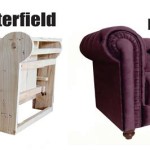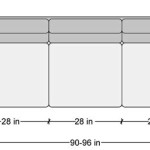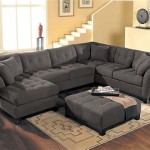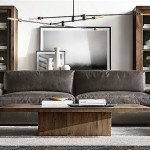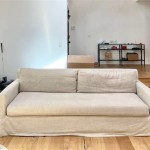What Is a Sofa? Essential Aspects and Considerations
Sofas, the centerpieces of living rooms and cozy corners, are more than just furniture; they are an embodiment of comfort, style, and functionality. Understanding the essential aspects of a sofa is crucial for making an informed decision when purchasing or designing one. This article explores the key elements that define a sofa, from its construction to its aesthetic appeal.
The part of speech of the keyword "sofa" is a noun, indicating a tangible object. As a noun, it plays a central role in the sentence, representing the subject, object, or complement. The following paragraphs will discuss the essential aspects of a sofa, considering its role as a noun.
1. Structure and Design
The structure of a sofa forms the foundation of its comfort and durability. The frame, made of wood, metal, or a combination of both, provides stability and support. The suspension system, consisting of springs, webbing, or cushions, determines the level of comfort and support. The cushions, filled with foam, feathers, or a blend of materials, provide the ultimate comfort and shape.
2. Size and Shape
The size and shape of a sofa depend on the available space and desired functionality. A sectional sofa offers versatility and adaptability, allowing for various configurations to suit different room layouts. A classic three-seater sofa provides ample seating for most households. The shape, whether rounded, rectangular, or curved, influences the overall aesthetic and seating arrangement.
3. Upholstery and Fabric
The upholstery of a sofa plays a significant role in its aesthetic appeal, durability, and maintenance. Leather upholstery offers durability and a luxurious look, but it requires regular care. Fabric upholstery, available in a wide range of colors and textures, provides versatility and comfort. The fabric's durability, stain resistance, and ease of cleaning should be considered when choosing.
4. Cushions and Comfort
Cushions are the heart of a sofa's comfort. The type of filling, such as foam, feathers, or a combination, determines the level of support and softness. The firmness or plushness of the cushions should align with personal preferences. The number and size of the cushions impact the overall look and seating capacity of the sofa.
5. Style and Aesthetics
The style of a sofa can range from traditional to modern, minimalist to eclectic. A classic Chesterfield sofa exudes timeless elegance, while a modern sectional sofá offers clean lines and versatility. The color and pattern of the upholstery contribute to the overall aesthetic. Personal style and home décor should be taken into account when selecting a sofa.
Conclusion
Understanding the essential aspects of a sofa empowers individuals to make informed decisions when selecting or designing one. By considering the structure, size, upholstery, cushions, and style, a sofa can be tailored to specific needs and preferences, creating a comfortable and stylish living space.

Faq What S The Difference Between A Sofa And Couch Wfmo

Sofa Vs Couch What Is The Difference

What S The Difference Between Sofa And Couch

Sofa Vs Couch The Big Debate

Sofa Vs Couch Which One Is Better Love My Beds

What Is The Difference Between A Sofa And Couch House Beautiful

What Is The Purpose Of A Sofa Sofas Stuff Blog Interior Design Ideas

What Is Your Ideal Sofa

Sofa Vs Couch What S The Difference Allen Tx Upholstery Fabrics

What Is A Modular Sofa Transformer Table

